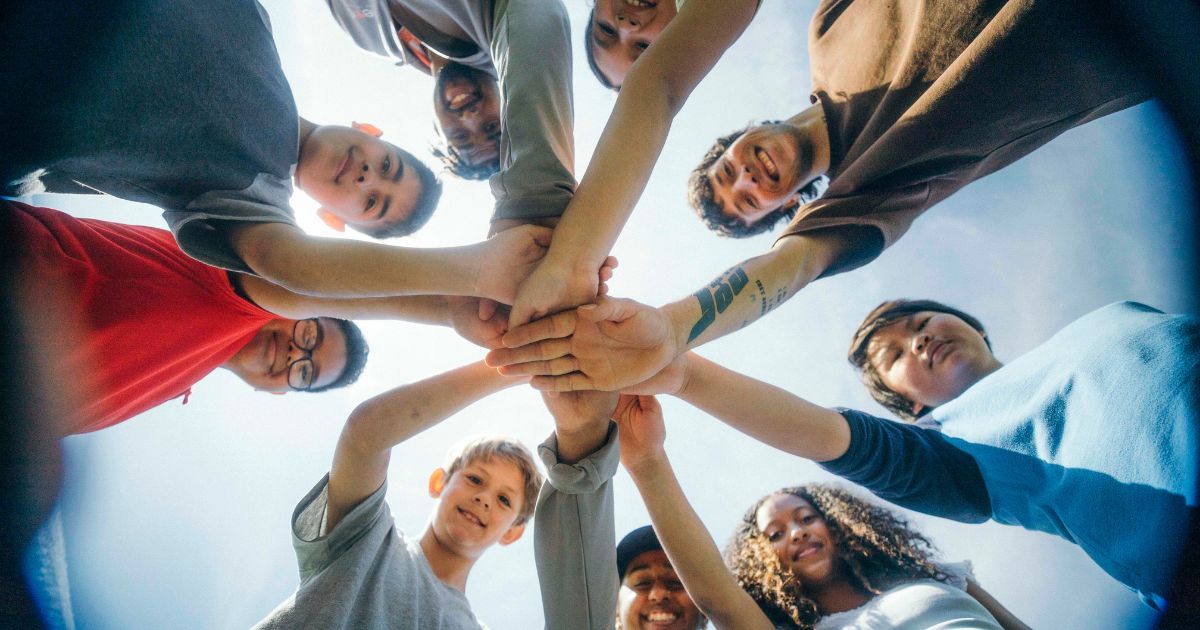
Today’s world can be incredibly isolating, but building strong relationships can help you combat that. We sat down with our Director of Curriculum & Innovation, Kristen Henry, to discuss how to pursue human connection as American loneliness reaches an all-time high.
Oh, hey. How are you feeling today?
I’m feeling lonely.
It’s okay. I’m okay. Also, it’s not just me – it’s literally an American epidemic.
I’m serious. The US Surgeon General, Vivek Murthy, calls loneliness the new smoking. He says the impact of this sense of isolation on our well-being is the equivalent of smoking 15 cigarettes a day. That’s gross.
What is going on?
It’s the pandemic, right? Freaking COVID. Well, yes. But also…
It must be our cell phones then. Social media is the root cause, isn’t it? It’s because we use this tiny computer in our pocket to connect with people in the least personal of ways, and we never leave the house, and maybe haven’t changed the setting on our Doordash from COVID times for “contactless delivery.” Yes, that’s it, but also…
There is certainly data to support that cellphones have exacerbated the condition of loneliness by making isolation unavoidable through dopamine-filled wormholes and the false dualistic narrative that tricked us into thinking we’re all more different than alike. And, the pandemic certainly added gasoline to the embers.
But, the truth is that in America rates of loneliness have been climbing since the 1970s, and this general sense of growing human disconnection has evolved into what is now known to be a national health problem. The Census Bureau data confirms that people are spending less time with friends and more time alone. Research reflects an impact on connecting loneliness with negative outcomes such as dementia, heart disease, stroke and overall life expectancy. Current rates of loneliness are surpassing those of both diabetes and obesity.
Surveys reveal that about 60% of Americans are lonely on a regular basis. But, the phenomenon is more likely experienced by members of certain subgroups; underrepresented racial groups, people with lower incomes, and younger people are all more likely to be lonely. In fact, 79% of adults aged 18 to 24 report feeling lonely – a number that’s more than twice as likely as seniors 66 and older.
What we know: People with robust social connections are more likely to live longer, healthier, and happier lives.
So what can you do if you’re feeling lonely?
If you see something, say something. Are you lonely? Tell someone, they’re probably lonely too.
Think small, microacts of change and schedule anti-loneliness mini activities. Whether it’s a post-it note or a calendar invitation, pepper your life with small intentional acts of connection. Call your grandma on Sundays. Write a note for a loved one to find in their pocket.
Surround yourself with mirrors AND windows. The opposite of isolation is inclusion. Seek relationships and spend time with people whose lives are similar to yours and those who are different.
On matters of your personal leisure, live your life like a game of chess, not Tetris. Be intentional about where you place your attention, and see your time for the precious commodity that it is. Somewhere right now, there is a room of advertising moguls strategizing about how to gain and keep your attention.
Screentime is not created equally in matters of well-being. There are passive activities (eg. rewatching all 7 seasons of Parks and Rec), and there are activities that engage primitive parts of our brains. Check in with how you’re feeling to see if you can spot the difference. To be honest, I’m not a fan of the version of me that’s steeped in comparison envy; she’s insecure and hostile.
So, what small thing could you do to bring your awareness to the pursuit of human connection? For me, I’ve just decided that the next time I’m binge-deep into the next season of whatever the heck I’m watching, and my television begs the question “Are you still watching?” Rather than cursing its judgemental tone and reaching for the remote to tell it “YES I AM,” I’ll pick up my phone (which will certainly be within reach), bypass my daughters’ Stories, and call an actual human being to say hello.




